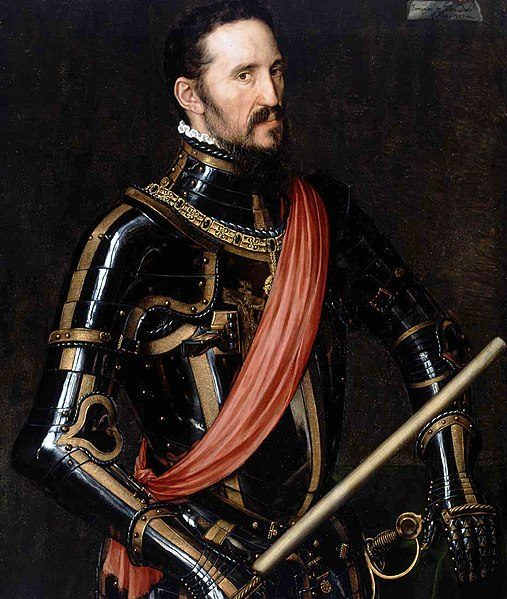By Tom English, Gale Field Sales Executive – North UK
I remember being told in my very first history lecture at university that there’s no such thing as ‘the truth’. I also remember the passion with which the esteemed professor near-bellowed this message to a large group of fresh faced undergraduates. He was adamant. Another professor gave each and every one of his students a letter pointing out that one doesn’t go to university to learn history, but to read history. The message was clear: seeking out and drawing upon a variety of sources and perspectives is an essential part of a history degree.
There is no one objective account of past events – no single telling of what happened and its impact, much less a single version of the meaning of such. We each tell our stories differently, because we each have different perspectives, different interests and different values. Think about when you and someone you spent the day with recount the events of that day to a third party – one of you will highlight, accentuate, perhaps even embellish, some points, while the other might omit those points and focus on others instead.
The differences in how we tell our stories relate to the recording of history, the retelling of its events and the appraisal of its characters. It is these differences that highlight the value of accessing a broad range of primary sources.
The Iron Duke
Competing agendas and interpretations run throughout history. One person’s hero could be another’s tyrant. Fernando Álvarez de Toledo, 3rd Duke of Alba, provides a good example of this.
In 1567, under the direction of Philip II of Spain, the Duke of Alba marched to the Netherlands with a 10,000-strong army to suppress civil and religious rebellion. At that time, the power of the Spanish empire and the strength of its military was unparalleled. Alba was regarded as one of Spain’s finest and most brutal generals. His brutality in the Netherlands was so notorious that he became known as the Iron Duke, having instituted the draconian Council of Troubles (also known as the Council of Blood) to round up, punish and neutralise the main protagonists in the rebellion. Despite Alba’s military victories and sheer brutality in suppressing rebellion, however, new rebellions kept popping up. Rebellion became part of daily life in the Netherlands. And the cost of Alba’s army was bankrupting Spain. The Dutch Revolt was never suppressed, and Alba was relieved of his duties in the Netherlands in 1573.
What do the archives in Gale Primary Sources tell us about Alba’s legacy, though?
Mixed Reviews
Gale Primary Sources includes various takes on Alba’s legacy. An article from The Scots Magazine in 1789, found in British Library Newspapers, ranks Alba “amongst the greatest Generals of the sixteenth century” – though tempers this appraisal by noting how his laurels were “so often drenched in blood, and the brilliancy of his victories tarnished with barbarity”, also referring to his “pride and insatiable avarice”.


for S. Gellibrand, 1673. The Making of the Modern World http://tinyurl.galegroup.com/tinyurl/6stRs7
On the other hand, Alphonse Vargas who was in the Netherlands after Alba, was said to have expressed the opinion that “the Low Countries were lost to the King, his master, through an excess of clemency and compassion on the part of the Duke.”

Alba’s name was also cited in a spat between the Bishops of Ghent and Bruges and the Universities of Ghent and Brussels in 1856 (reported in the Hampshire/Portsmouth Telegraph), which suggests differing perceptions of Alba’s legacy between the Catholic church and Belgium’s secular universities.

A Diplomatic Squabble
Perhaps the most notable contention relating to Alba’s legacy, though, came in the twentieth century, nearly four hundred years after his death, when then Vice President of the United States, Richard Nixon, was alleged to have made a negative comment about him in a speech in Brussels in 1959, raising Spanish hackles. The following telegrams (now included in Gale’s U.S. Declassified Documents Online collection) sent between the U.S. Department of State and Madrid, show the Spanish objection to the comments, the Department of State’s communication that “no offense to the Spanish was intended”, and the reconciliation between the two parties. Apparently, the comments about Alba had been misattributed to Nixon.



Searching for Perspectives
What I found written about Alba through my research in Gale Primary Sources shows how agenda, interpretation and perspective are inextricable features of the historical narrative. It may be that the professor who featured in my first history lecture was right – the objective truth about the past is unobtainable. What is clear, however, is that the more perspectives we gather from primary source materials, the more able we are to form credible opinions and make cogent arguments about the events and characters of the past and their significance. Searches for the truth, then, become searches for perspectives.
As a cutting-edge research platform with over 169 million pages of primary source material from across the globe, Gale Primary Sources is a great place to start that search.
Blog post cover image citation: https://commons.wikimedia.org/wiki/File:Antonis_mor,_fernando_%C3%A0lvarez_de_toledo,_duca_di_alba,_1549,_01.JPG By Sailko [CC BY-SA 3.0 (https://creativecommons.org/licenses/by-sa/3.0)], from Wikimedia Commons


